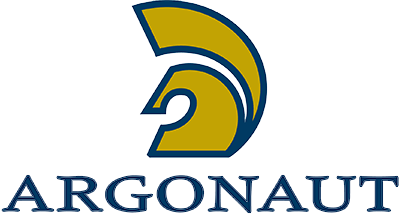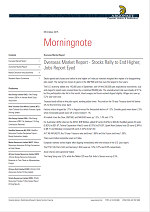Market Update & Important Indicators:
The Dow Jones Industrial Average fell Wednesday as energy shares slid with the price of oil and investors parsed another round of corporate earnings reports. Declines in energy stocks dragged on the blue-chip index, with the price of U.S. crude oil sliding 3.8% to $50.44 a barrel – its largest decline in more than a month — after the U.S. Energy Information Administration said gasoline supplies rose for the first time since February. Energy shares were among the biggest decliners in the S&P 500, losing 1.4%. The U.S. gold price also fell overnight, dropping 0.7% to 1,280.30 US$/oz. Investors and analysts are watching for corporate earnings growth to support what many say are elevated stock prices, after signs of economic expansion and hopes for corporate-friendly policies from the Trump administration helped drive major indexes upward. Cooling economic data and concerns about the administration's ability to enact hoped-for tax cuts and regulatory rollbacks have weighed on major U.S. indexes in recent weeks, along with worries about rising geopolitical tensions. Investors' allocation to U.S. stocks fell to its lowest levels since January 2008 in a survey of global fund managers by Bank of America Merrill Lynch, with 83%, the highest ever, saying U.S. stocks are overvalued.
European stocks finished with moderate gains Wednesday, as investors assessed a stack of earnings reports a day after the market suffered its worst session in five months. The Stoxx Europe 600 rose 0.2% to end at 377.24, recovering a little from Tuesday's tumble of 1.1%, the index's biggest one-day percentage drop since Nov. 2. That drop came largely on the back of a fall for U.K. blue-chips, as mining shares sold off and the pound surged above $1.28 after U.K. Prime Minister Theresa May unexpectedly called an early general election for Britain. May, whose Conservative Party holds a 17-seat majority in parliament, won parliamentary approval on Wednesday to hold a snap election on June 8. May said an election is needed to strengthen the U.K.'s position in its coming Brexit negotiations with EU officials.
Japan's Nikkei Stock Average inched up 0.1%, as a weaker local currency tends to benefit exporters. Markets elsewhere in Asia mostly declined after U.S. stock markets ended lower Tuesday as earnings in the banking and health-care sectors fell short of expectations. China's Shanghai Composite Index was down 0.8% amid pessimism about more stringent financial regulations. Fears over more financial irregularities at Chinese banks dragged down shares in the sector. Hong Kong's Hang Seng Index was last down 0.3%, also hurt by weaker market liquidity.
A third straight session of losses pulled Australian shares to a fresh three-week low, with the major banks leading a broad sell-off amid heightened geopolitical concerns. Overnight for the local market, U.K. Prime Minister Theresa May called an early general election for June 8 aimed at strengthening her hand in negotiating the country's exit from the European Union. The S&P/ASX 200 lost 32.7 points, or 0.6%, to close at 5804.0. The index hasn't settled below the 5800 mark since March 27. The four largest banks collectively knocked more than 17 points off the ASX 200.
The London Metal Exchange's three-month copper contract closed down 0.29% at $5,556/t. All other base metals finished higher on Wednesday. Aluminium prices rose 0.7% at 1,889/t, nickel prices rose 0.3% at 9,286/t, lead prices rose 2.7% to 2,155/t, tin prices rose 1.8% at 19,800/t and zinc prices rose 1.0% at 2,528/t.
In this Issue:
Saracen Mineral Holdings (SAR) | Positive cashflow still around corner | HOLD
Market Cap $836m | Target Price $1.05 | Current Price $1.00
Saracen (SAR) released March Q results with group production of 65.1koz gold at an all-in sustaining cost (AISC) of $1,510/oz (previously announced), vs Argonaut’s forecast of 68koz at $1,380/oz. Production was impacted by heavy rainfall and a gearbox failure at Carosue Dam, which offset the benefit of higher mined grades across all operations. Cash outflow was higher than Argonaut anticipated, declining by $13.3m Q-on-Q to $30.6m. HOLD maintained with a $1.05 target price.
Paladin Energy (PDN) | Fight for Survival | SELL
Market Cap $180m | Current Price $0.11 | Target Price $0.08
Paladin Energy (PDN) released March Q results with 0.9Mlb U3O8 production and 0.7Mlb sales from Langer Heinrich (LHM: 75% PDN, 25% China National Nuclear Corporation [CNNC]), down 26% and 52% respectively Q-on-Q. C1 costs increased 31% to US$21/lb, primarily driven by lower production. Cash at 31 March was US$22m with face value debt of US$382m. The Company is attempting to restructure the balance sheet, but a dispute with CNNC over a potential option to acquire the remaining 75% of LHM has delayed the process. PDN is seeking standstill agreements with convertible bond (CB) holders while arbitration proceedings with CNNC take place. Despite elevated sales in the current Q and rising uranium prices, we estimate the Company’s cash balance will drop below US$5m by 30 June if the restructure does not proceed. Sell maintained with a $0.08 target price.
Recent Contacts & Presentations:
Metro Mining Ltd (MMI), Tox Free Solutions Ltd (TOX), St George Mining Ltd (SGQ), Venturex Resources Ltd (VXR), Creso Pharma Limited (CPH), Sino Gas & Energy Holdings Ltd (SEH), Orecorp Limited (ORR) Doray Minerals Limited (DRM), Capricorn Metals Ltd (CMM) Independence Group (IGO), Cardinal Resources Limited (CDV), Metal Bank Ltd (MBK), MOD Resources Ltd (MOD) Quintis Ltd (QIN), Regis Resources Ltd (RRL), Apollo Minerals Ltd (AON), Ironbark Zinc Ltd (IBG), Sovereign Metals Ltd (SVM), Pilbara Minerals Ltd (PLS), Laconia Resources Ltd (LCR), Hazer Group Ltd (HZR), Transerv Energy Ltd (TSV), Ausquest Ltd (AQD), Quintis Ltd (QIN), Paradigm Biopharma Ltd (PAR), Pharmaust Ltd (PAA)


